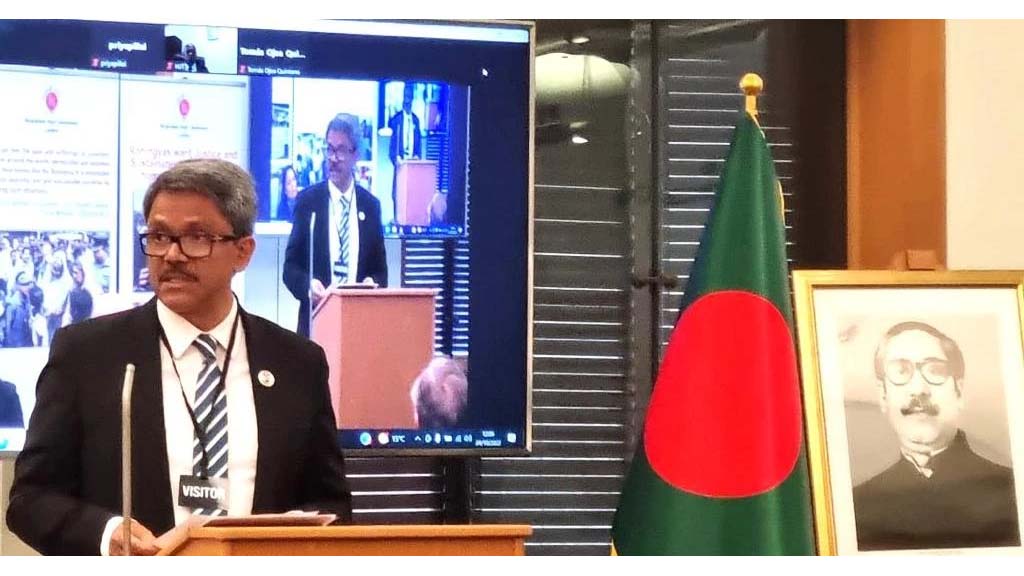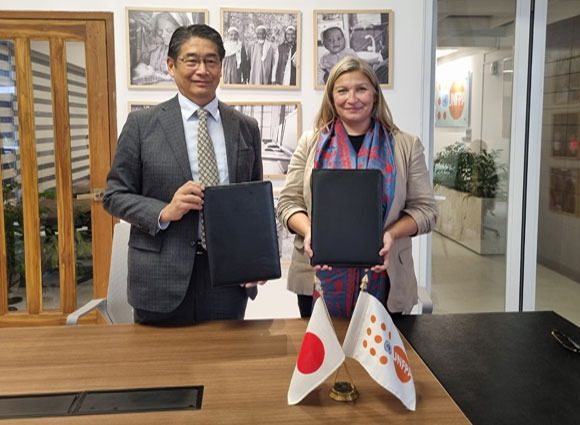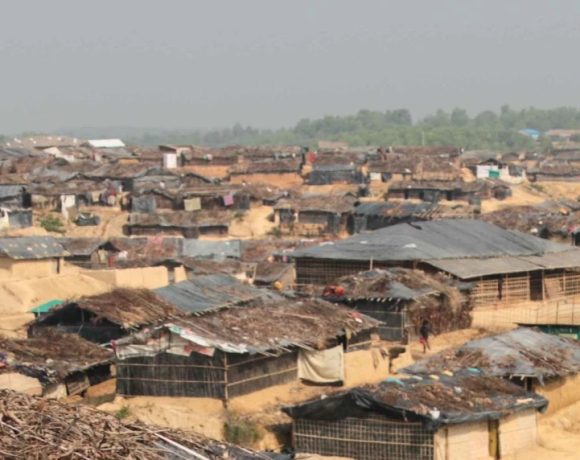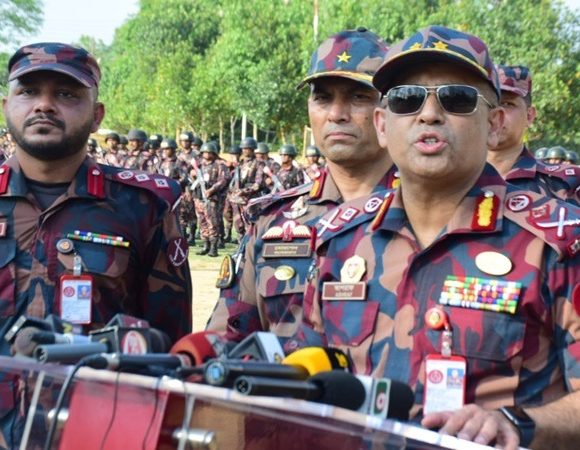Without accountability, political transition in Myanmar won’t fix Rohingya issue, Bangladesh tells seminar at UK Parliament

NEWS DESK
State Minister for Foreign Affairs Md Shahriar Alam has said that in the absence of justice and accountability, a political transition in Myanmar will not fix the Rohingya issue.
“That is why, this time around, accountability must be ensured, justice must be delivered, and impunity must not be allowed by the international community to ensure the return of Rohingyas to their homeland Myanmar,” he said.
Alam was speaking at a high-level panel discussion, titled “5 years of the Rohingya Crisis: Renewed Pledges towards Justice and Sustainable Returns”, organized at the UK Parliament by Bangladesh High Commission in London on Monday.
The state minister said each year, under the generous patronage of Prime Minister Sheikh Hasina, Bangladesh spends $1.22 billion on food, shelter, health, education and skills development of the Rohingyas. The cost is increasing while international assistance is decreasing, he observed.
After five long years of hosting Rohingyas, it is unjust that only Bangladesh will continue to carry this burden, he said.
“We, therefore, call upon more Commonwealth, OIC members and western countries to join the ICJ case by the Gambia, which will expedite the justice for Rohingyas and facilitate their early return,” Shahriar Alam said.
The state minister commended UK’s diplomatic leadership at the UN Security Council as a penholder on Myanmar and hoped to see the UK explore all available Council tools to enforce accountability, justice and sustainable returns of the Rohingyas.
Speaking on the occasion, Minister of State for the Middle East, South Asia and the United Nations at the UK FCDO, Lord Tariq Ahmad of Wimbledon, paid tribute to Bangabandhu for his lifelong struggle to establish peace and justice and lauded Prime Minister Sheikh Hasina for showing “incredible generosity and humanity” to host and protecting over a million Rohingyas.
Lord Ahmad reassured that the UK, as a long-standing friend and partner, would continue support to Bangladesh to find a durable solution to the persisting Rohingya crisis.
Recalling Prime Minister Sheikh Hasina’s speech at the 75th UNGA, Bangladesh’s High Commissioner to the UK Saida Muna Tasneem said the cost of the prolonged presence of Rohingya on Bangladesh’s society, security, resources, economy, environment and ecology is huge, immeasurable and in some cases irreversible. “So, their repatriation, the only sustainable solution to this crisis, is a must and needs to be expedited by the international community.”
The envoy praised the UK’s recent decision to join the Gambia versus Myanmar case at the ICJ and commended Canada and the Netherlands for their commitment to ensuring justice and redress atrocities committed against the Rohingyas and securing their right of return to their homeland.
UK’s Shadow Minister for Asia and the Pacific Catherine West MP; Chair of UK All-Party Parliamentary Groups on Bangladesh and the Right of the Rohingya Rushanara Ali, MP; Vice Chair of All-Party Parliamentary Groups on Bangladesh and Myanmar Tom Hunt MP; Solicitor General of the Gambia Hussein Thomasi; High Commissioner of Maldives to the UK Dr. Farah Faizal; and High Commissioner of Canada Ralph Edward Goodale spoke on the occasion.
Prof Dr Imtiaz Ahmed, Director, Centre for Genocide Studies, Dhaka University; Tomás Ojea Quintana, former United Nations Special Rapporteur on the situation of human rights in Myanmar and DPRK; Dr Priya Pillai, Head of Asia Justice Coalition (AJC) Secretariat, Bangkok; Professor Payam Akhavan, ICJ Counsel to the Gambia and ICC Counsel to Bangladesh; Antonia Mulvey, former Investigator to the UN Independent International Fact-Finding Mission on Myanmar and Executive Director of Legal Action Worldwide; Nicholas Koumjiian, Head of the Independent Investigative Mechanism for Myanmar (IIMM) under UNHCR; Maung Tun Khin, President of Burmese Rohingya Organization in the UK; and Hasina Begum, a Rohingya survivor from 2017 “Clearance Operations” participated in a panel discussion.
Members of UK’s House of Lords and the British parliament, academics, professionals, and eminent members from the British-Bangladeshi diaspora attended the event.














